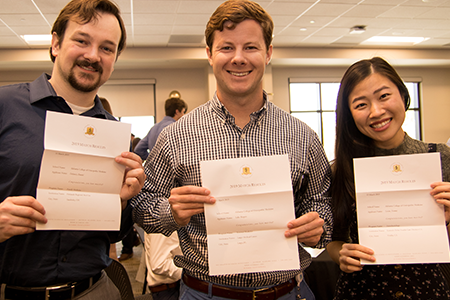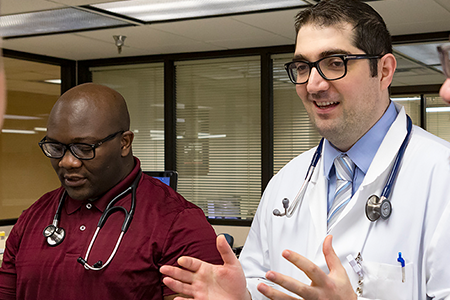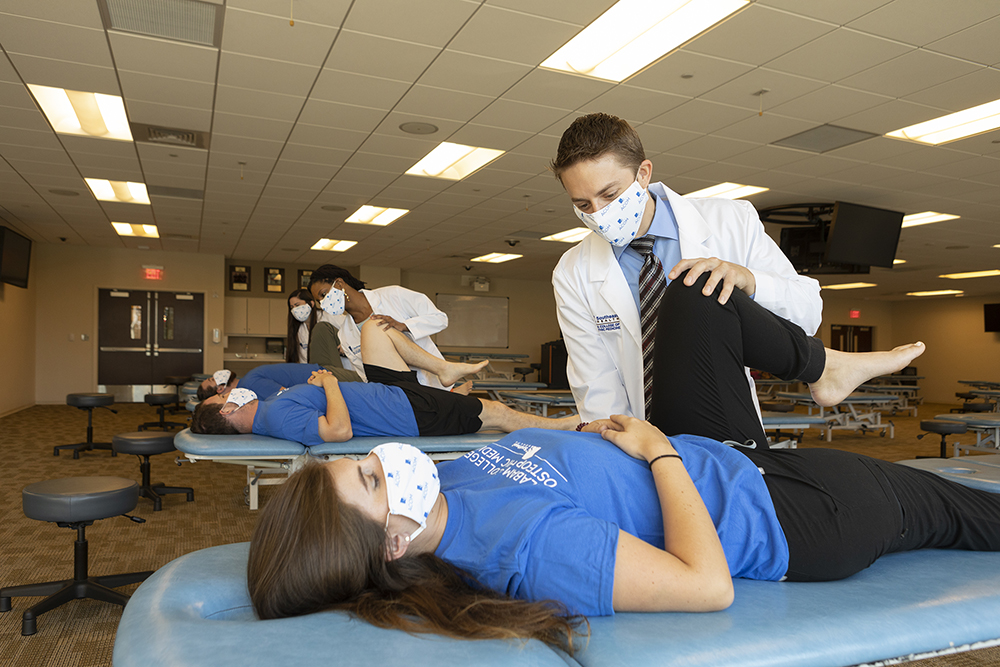Curriculum Overview
Students are assigned to a core clerkship site for their clinical training. The core curriculum for the third year includes Psychiatry, Internal Medicine (2), Obstetrics/Gynecology, General Surgery, Pediatrics, Family Medicine and Rural Health. The remainder of the year is designated for elective clerkships for students to personalize their clinical training. The fourth-year curriculum is intended to build on the foundational experience provided in the third year. These experiences are in settings where more demands for independence can be expected of the senior medical student. Students will complete clerkships in Emergency Medicine and Hospice/Palliative Care. Numerous electives allow students to travel to locations that offer them the opportunity to develop residency training applications for a successful transition to graduate medical education. Learn more about the clinical clerkships below.
3rd Year
4th Year


Pathway to Residency
This curriculum is designed to help students navigate the complex process of choosing a specialty and prepare for the next phase of their medical education. Lectures and assignments are designed to assist students in their preparation for completing residency applications and refine their interviewing skills. This curriculum will help students maintain a competitive advantage to increase match success.

Core Site Didactics
Each clinical training site offers didactic sessions students are expected to attend and participate in as assigned.

Osteopathic Principles & Practice Focus
Each core clerkship rotation includes clinically relevant osteopathic activities, and each clinical training site is provided with OPP tables for student use. Students are expected to use their osteopathic training during all aspects of patient encounters as indicated.
